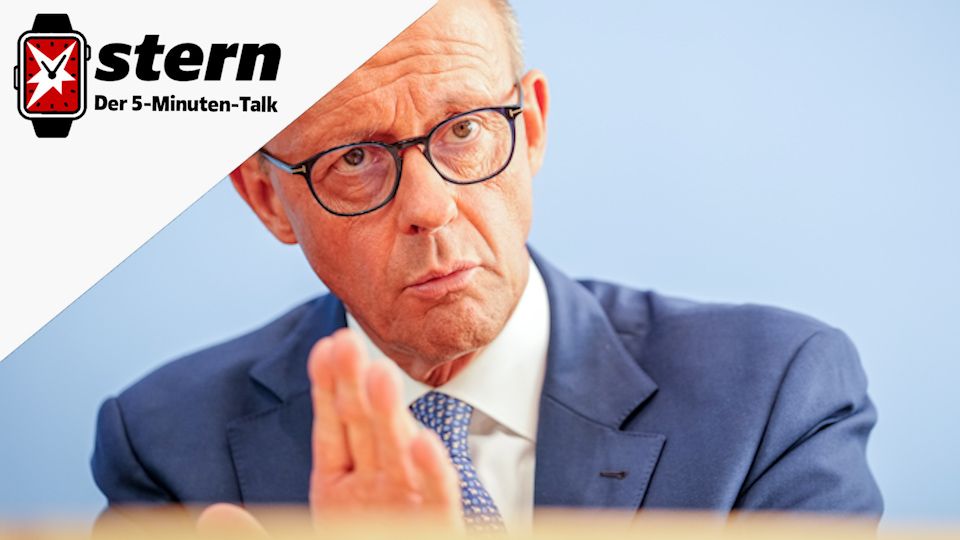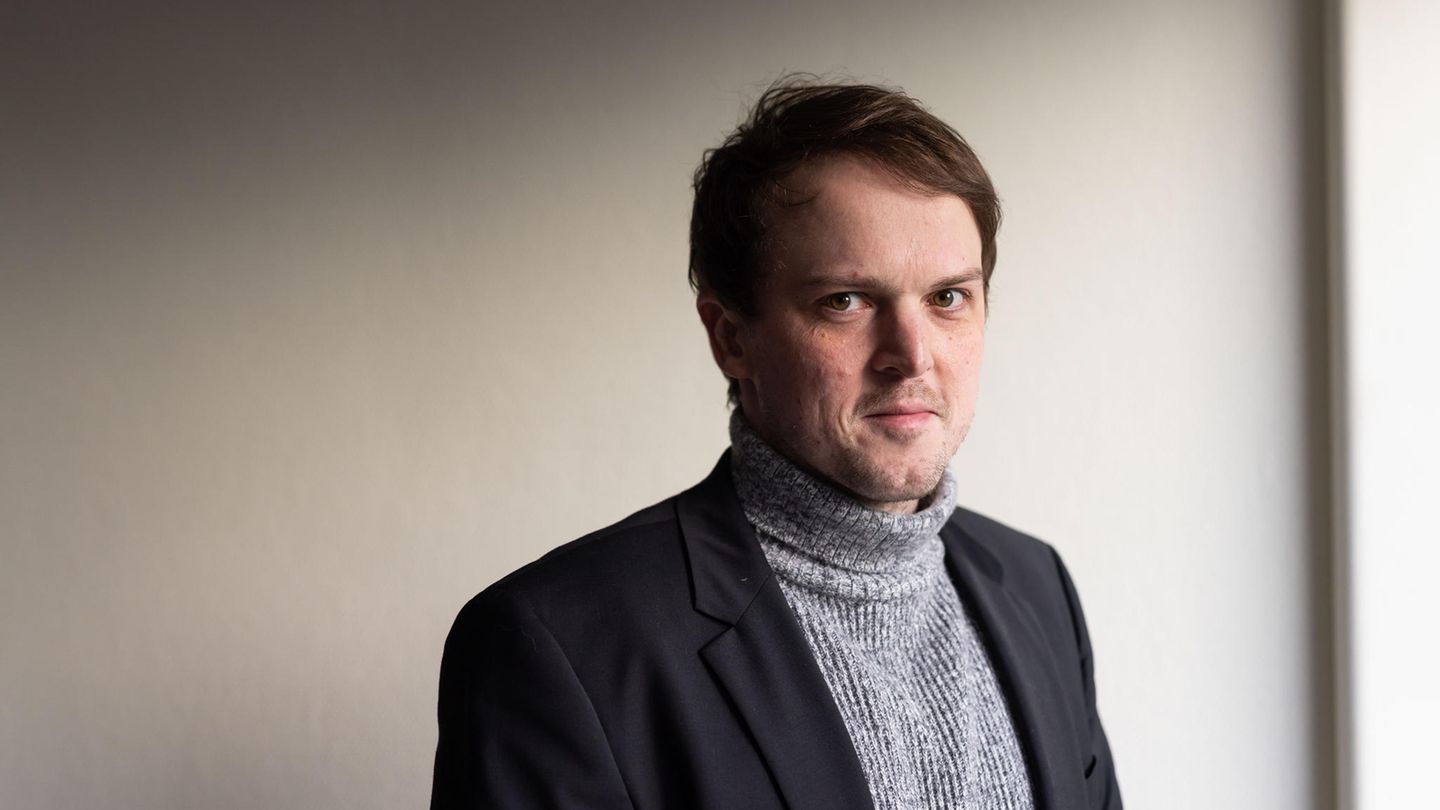Green MEP Erik Marquardt explains why the conservatives’ migration plans endanger the whole of Europe – and yet in the end it is always the Greens’ fault.
Irregular migration must finally be limited – that is the tenor in politics, and that is also what the Green Party leadership is saying now. Do you agree?
We are fighting for a better distribution of refugees, for systematic registration at the external borders and for combating the causes of flight. This would ultimately lead to less chaos and less irregular migration.
Why then does it often seem as if the Greens are the ones blocking migration issues?
First of all: The Greens have never had the Federal Ministry of the Interior, a state Ministry of the Interior or any responsibility in the EU Commission. So what is failing here is not a green migration policy. We have been following a fairly strict path of authoritarian asylum policy in Germany and Europe for years – but unfortunately it does not fulfill the expectations raised at all. And is the Greens always to blame?
“The Union demands nothing less than the violation of the law”
So is this all just propaganda from CSU leader Markus Söder?
In this hysterical debate, it often seems as if there are only two extreme positions: “Open borders, everyone can come in” versus “Close borders, turn everyone away”. That is nonsense. For us, it is the concrete proposals that matter. And we were often right to reject them: the EU-Turkey deal, for example, failed miserably and stationary border controls stop commuters but not refugees because asylum seekers are allowed to apply for asylum there just as well. The Union has now noticed this too – so it is demanding nothing less than a breach of the law.
© Philipp von Ditfurth/dpa
To person
Erik Marquardt, 36, has represented the Greens in the European Parliament for five years. As a photographer, he documented the situation of refugees on the Balkan route in 2015. The topic never left him. Overcrowded camps on the Greek islands, overloaded boats on the Mediterranean, illegal pushbacks at the EU’s external borders – wherever there are refugees, Marquardt is usually not far away. Born in Berlin, he studied politics, administration and sociology. He also served as spokesman for the Green Youth for two years.
In your opinion, what speaks against rejections?
There is nothing legally wrong with turning away people who do not meet the entry requirements and do not apply for asylum. This happens every day. But as soon as someone claims that they are in danger and need asylum, then this is no longer possible.
Because the asylum application must first be examined?
Of course. But when I listen to Friedrich Merz, I ask myself: does the Union still believe in legal procedures and the European Union, or does it want decisions to be made directly at the border with a stick? There is a difference whether we are talking about constitutional border controls or about systematic border closures, and the European legal order speaks against this. The proposal would cause a chain reaction among the EU partners and fundamentally endanger the internal market.
What speaks against rejecting at least those refugees who have already applied for asylum elsewhere in Europe?
It sounds so simple. But each case would have to be examined. Has an application been submitted elsewhere before? In which country? Does the person have reasons to continue travelling, such as family in another country? This examination only takes place at the beginning of the asylum procedure, then a decision is made as to whether the person can stay or whether another country must take the person back. These procedures are carried out in accordance with the Dublin Regulation.
That’s the theory. In practice, Germany made requests to EU states for 75,000 refugees last year, but only transferred 5,000 people.
That is exactly where we need to start. We need to be tougher on the countries on the EU’s external borders: Why are you delaying the procedures? Why are you treating people so badly that you have driven them away? Why are you shirking your responsibility and leaving us to pay the price? We need to discuss this, rather than blanket rejections.
“Nothing but election campaign noise”
Friedrich Merz sees Germany in an emergency situation. One only has to look at the situation in schools, on the housing market, in doctors’ offices, says the CDU chairman. In emergency situations, rejections are permitted.
Merz is painting a grotesque distorted picture of reality. No one denies that there are municipalities that are overwhelmed. But what Merz is doing here is nothing more than election campaign rhetoric. The European Court of Justice has set very high hurdles for a state of emergency. Are we really in a national emergency because of the Solingen attack, as terrible as it was, which should lead the largest member state of the European Union to say: We have lost control and are no longer abiding by the law?
But what happens if Germany simply rejects the application? Markus Söder complains that countries like Italy, Greece and Bulgaria are also not complying with European law.
So is the argument now that we no longer care about European law because other countries don’t comply with it either? That cannot be Germany’s position. That would result in a chain reaction that would shake European law, the Schengen Agreement, the very foundations of Europe. That would be the wrecking ball for the European post-war order. Apart from that, the EU partners would not simply accept that. The fact that a family was sent back to Poland without prior agreement recently caused a diplomatic scandal.
“Biting inhibitions among conservatives”
What other means of pressure would Germany have?
The means of pressure is the European Commission. Instead of continuing to work on the traffic light coalition, Friedrich Merz should talk to his party colleague Ursula von der Leyen, the President of the European Commission. The Commission must finally stop turning a blind eye. It is the guardian of the treaties. Merz could also talk to his party colleagues in the European People’s Party who govern in Poland, Croatia and Greece – countries that do not properly register people seeking protection. Von der Leyen could initiate infringement proceedings everywhere and find clear language. But there are apparently reservations among the conservatives about biting.

Totally against the Chancellor: Is Merz overdoing it with his asylum policy?
05:08 min
And the federal government is powerless?
No, I expect two things from the Chancellor. That he brings reason into the debate and does not leave the space to right-wing radicals and hysterical conservatives alone. And I expect him to put up a clear stop sign in Europe: Not like this! You register the people and then we will talk about distribution.
But this solidarity mechanism is precisely what doesn’t work…
Wait a minute! We only recently agreed on the reform of the Common European Asylum System (CEAS) – after almost ten years of tough negotiations between 27 member states and the EU Parliament. I found a lot of it to be too anti-refugee, but now it has been decided. I suggest we implement it first before we say again that it is not enough. Conservatives, social democrats and liberals wanted this reform. It is not serious to oppose laws that you yourself have just jubilantly passed.
So there will be no further changes with the Greens?
It’s not as if we don’t notice that many people want changes in migration and that there are problems. We want to change a lot of things, but we have repeatedly tightened asylum law in recent years. There was always a double promise: everything will be much better now. And in doing so we will finally take the wind out of the right-wing’s sails. Neither of these things ever happened. But unfortunately the asylum debate is more focused on the toughest slogans than on the complex reality.
Source: Stern
I have been working in the news industry for over 6 years, first as a reporter and now as an editor. I have covered politics extensively, and my work has appeared in major newspapers and online news outlets around the world. In addition to my writing, I also contribute regularly to 24 Hours World.




